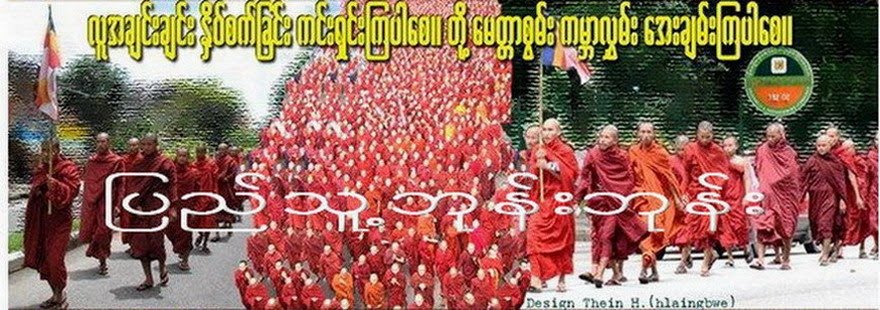
Wednesday, November 5, 2008
Barack Obama's message of change for Burma
Wednesday, 05 November 2008 12:26
Barack Obama won an historic presidential election. He became the 44th U.S. President just four years after he won a seat in the United States Senate from the State of Illinois. Throughout his quest for the presidency, his campaign has focused on one word – change. Between 2004 and 2008, President-elect Barack Obama had two opportunities to deliver his message of change for Burma, and he did deliver it.
The first opportunity was during the Saffron Revolution. In September, 2007, Obama issued a strong statement condemning the Burmese military regime's inhumane attacks on peaceful demonstrators in his capacity as a U.S. Senator. In his statement, he called on the regime to release Aung San Suu Kyi and to begin national reconciliation.
The second was in the wake of Cyclone Nargis. He called the tragedy in Burma heartbreaking. In May 2008, he joined Senator John Kerry for a Senate resolution on calling for humanitarian aid for Cyclone Nargis' victims.
In addition, Vice President-elect Joe Biden has been a longtime supporter of Burma's democracy movement. In July 2008, Congress passed the Tom Lantos Block Burmese JADE (Junta's Anti-Democratic Efforts) Act under his leadership. Biden said, "I look forward to the day when a democratic, peaceful Burma will be fully integrated into the community of nations."As Vice President, Biden will strengthen Obama's message for change in Burma.
The voters who elected Obama, however, were far more focused on the economy than on foreign affairs.
The financial meltdown as well as a rise in unemployment has given him a chance to take the U.S. in a new direction. The Obama administration must immediately launch a plan for economic recovery in the first 100 days after his inauguration on January 20, 2009. It appears the 44th president's domestic agenda, such as energy independence, health care, education and more, will significantly occupy his four years in the White House, much as was the case with former President Bill Clinton. If he does well, the chance for reelection in 2012 is promising. Despite these efforts, President Obama will also have to deal significantly on the international scene as well.
In fact, the Obama administration will try to end the war in Iraq, and continue to pursue al-Qaeda. These will be his main foreign policy priorities. As such, human rights and promoting democracy may not even rise to be a mid-level agenda during his first term at 1600 Pennsylvania Avenue. However, it appears likely that he will want to deal with the genocide in Darfur that has touched his mind and heart since 2005. In this scenario, the new administration will have to talk to China, a key ally of Sudan. If that is the case, the White House could also raise the issue of Burma at the same time. Obama will be able to kill two birds with one stone.
Samantha Power, Obama's former foreign policy adviser, doesn't believe the current UN approach towards Burma will produce a tangible result. In October 2007, she wrote in the Time that "history has shown that envoys rarely succeed unless the Security Council is united behind them." She further suggested a multilateral approach towards China.
Obama, Biden, and Power share the same policy: Multilateralism.
Obama has supported economic sanctions against Burma He has backed President Bush's actions as well as his rhetoric on Burma. However, he has a fundamental difference with the Bush administration on how to approach Burma itself. He sees Bush's approach as one of unilateralism. This difference in foreign policy approach was reflected by Obama's opposition to the Bush administration's invasion of Iraq in 2003. Instead, Obama will likely pursue a multilateral approach; that is working together with ASEAN, the European Union, Japan, India, and China. Indeed, Obama suggests the United States should lead these key international players on Burma in a multilateral effort.
President-elect Obama has a clear message of change for Burma's opposition groups too. His statement in September was that change must come from within Burma.
Unless change begins from within Burma, it appears likely that Obama's hands might be too tied to act. While he believes in change for Burma, it is up to the people of Burma to create the opportunity for him to act.
Wednesday, November 5, 2008
Barack Obama's message of change for Burma
Subscribe to:
Post Comments (Atom)

0 comments:
Post a Comment